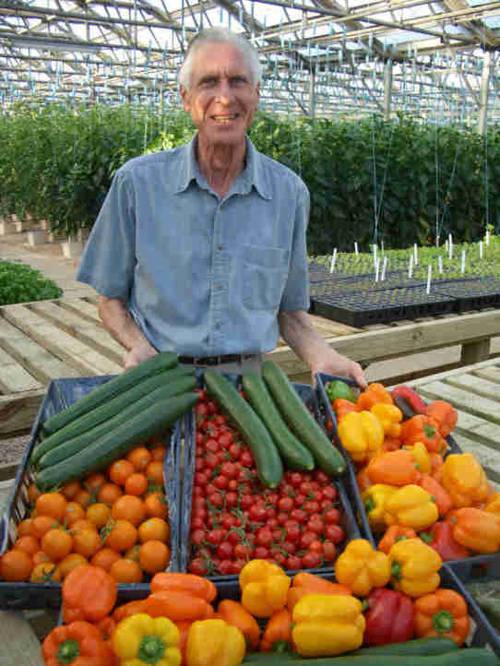
FAQ About Indoor Hydroponic Fruit Plant Cultivation

What is indoor hydroponic fruit plant cultivation?
Indoor hydroponic fruit plant cultivation is a method of growing fruit plants without the use of soil. Instead, plants are grown in a nutrient-rich water solution, allowing for precise control over the growth environment. This method is suitable for indoor environments where traditional soil gardening might not be feasible.

What are the benefits of growing fruit plants hydroponically indoors?
Growing fruit plants hydroponically indoors offers several advantages including controlled growth conditions, reduced need for pesticides, efficient use of water, and the ability to grow fruits year-round regardless of external weather conditions. This method also typically results in faster plant growth and higher yields compared to traditional soil-based methods.

Which types of fruits can be grown hydroponically indoors?
Many types of fruits can be successfully grown hydroponically indoors. Popular choices include strawberries, tomatoes, peppers, and small fruiting trees like dwarf citrus varieties and figs. The feasibility depends on the space available, the setup used, and the specific growing requirements of the fruit.

What equipment is needed to set up a hydroponic system for fruit plants indoors?
Setting up a hydroponic system indoors typically requires the following equipment: grow lights, a hydroponic reservoir, a nutrient solution, pH and EC meters, growing trays or containers, a water pump, and an air pump if using deep water culture. Additionally, depending on your system, you might need growing mediums such as rockwool or clay pellets.

How do you ensure proper lighting for indoor hydroponic fruit plants?
Proper lighting is crucial for indoor hydroponic gardens. LED grow lights are commonly used as they provide the full spectrum of light needed for plant growth and are energy efficient. The lights should be positioned close to the plants, typically 12-18 inches away, and should be on for about 12-16 hours a day, depending on the type of fruit plant you are growing.

Can you grow hydroponic fruit plants indoors all year round?
Yes, one of the key benefits of indoor hydroponic systems is the ability to grow fruit plants year-round. By controlling environmental factors such as temperature, light, and humidity, you can create ideal growing conditions regardless of the outdoor climate, enabling continuous cultivation and harvest.

What are common challenges in indoor hydroponic fruit plant cultivation?
Some common challenges include maintaining the correct nutrient balance, managing temperature and humidity levels, preventing algae growth, and ensuring adequate lighting. Additionally, because the system is indoors, plants can be more susceptible to pest infestations, which must be managed without the use of traditional chemical pesticides.

How does the nutrient solution work in a hydroponic system?
In hydroponic systems, fruit plants receive nutrients through a water-based solution. This solution is carefully balanced with the essential nutrients needed for plant growth, such as nitrogen, phosphorus, potassium, calcium, magnesium, and other trace elements. It is crucial to regularly monitor the pH and electrical conductivity (EC) to ensure optimal nutrient uptake by the plants.

Is hydroponic fruit growing sustainable?
Hydroponic growing can be quite sustainable as it typically uses significantly less water than traditional soil-based gardening due to the recirculation of nutrient solutions. Additionally, it allows for the efficient use of space and reduces the need for pesticides. However, sustainability can depend on the energy source for grow lights and environmental controls.

Can hydroponic systems be used for organic fruit growing?
It is possible to grow organic fruits hydroponically by using organic nutrients instead of synthetic ones. However, obtaining organic certification for hydroponic systems can be complex and varies by region. The primary challenge lies in meeting all organic farming standards without compromising on nutrient delivery efficiency.

What is the role of pH levels in hydroponic fruit cultivation?
pH levels are crucial in hydroponic cultivation as they affect nutrient availability to the plants. Most fruit plants thrive in a slightly acidic environment with a pH range of 5.5 to 6.5. Maintaining the correct pH levels ensures that the plants can absorb nutrients efficiently, preventing deficiencies and promoting healthy growth.

How can pest control be managed in an indoor hydroponic fruit garden?
Pest control in indoor hydroponic gardens often involves using non-chemical methods to prevent and manage infestations. These include introducing beneficial insects like ladybugs, using neem oil sprays, maintaining cleanliness, and physically removing pests. Regular monitoring is essential to catch and address any pest issues early.

What is the difference between hydroponic and soil-based indoor gardening for fruit plants?
The primary difference between hydroponic and soil-based gardening is the growing medium. Hydroponics uses a nutrient-rich water solution, which allows for faster growth and higher yields, while soil provides a natural medium for plants. Hydroponics typically offers more control over growing conditions, but may require more setup and maintenance knowledge.

What types of hydroponic systems are suitable for growing fruit plants indoors?
Various hydroponic systems can be used to grow fruit plants indoors, including NFT (Nutrient Film Technique), DWC (Deep Water Culture), and Ebb and Flow. Each system has its benefits and is suited to different types of fruit plants. For instance, DWC is ideal for larger plants, while NFT is efficient for smaller, fast-growing fruits like strawberries.

Is special training required to start indoor hydroponic fruit cultivation?
While no formal training is required to start indoor hydroponic fruit cultivation, gaining some basic knowledge through online resources, workshops, or community gardening groups can be beneficial. Understanding the principles of plant nutrition, system maintenance, and lighting will help ensure successful growth.

How long does it take for fruit plants to mature in a hydroponic setup?
The time it takes for fruit plants to mature in a hydroponic setup varies by species. Generally, plants grow faster hydroponically compared to soil. For instance, strawberries might start fruiting within a few months, while larger fruiting plants like tomatoes can take 3-4 months to reach maturity.

What are the costs associated with setting up an indoor hydroponic garden for fruits?
The cost of setting up an indoor hydroponic garden varies based on the scale and type of system. A basic setup including lights, nutrients, and a hydroponic system might start at a few hundred dollars. More advanced systems with automation and environmental controls can cost significantly more.

Can hydroponically grown fruits taste different from soil-grown fruits?
Hydroponically grown fruits can taste different from soil-grown ones, though the difference is often minimal. The taste can be influenced by factors such as nutrient management, plant variety, and maturity at harvest. Some growers report that carefully managed hydroponic systems can produce fruits with enhanced flavor and texture.

What is the impact of temperature on indoor hydroponic fruit cultivation?
Temperature is a critical factor in indoor hydroponic fruit cultivation. Most fruiting plants prefer temperatures between 65°F and 75°F. Too high or too low temperatures can slow plant growth and affect fruit production. Using a climate-controlled environment helps maintain optimal conditions for robust growth.

How often should the nutrient solution be changed in a hydroponic system?
The frequency of changing the nutrient solution depends on several factors, including the type of system and the plants being grown. As a general rule, the solution in hydroponic systems is refreshed every two weeks to ensure the plants receive a consistent supply of nutrients and to prevent the buildup of harmful pathogens or salts.
